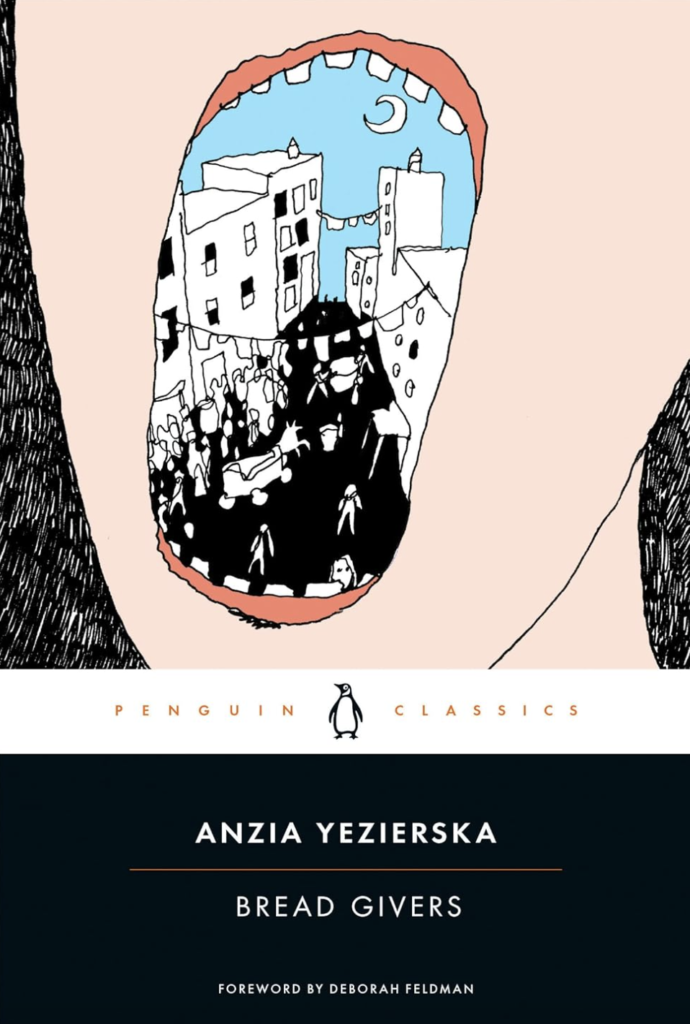Last Edited on January 14, 2023 by Sarah Pereira
This was a research paper I wrote surrounding Bread Givers for my English II class. It’s an Bread Givers analysis surrounding the effects of psychological abuse in youths and its connection to immigrants. Bread Givers features a rare perspective and excellently depicts generational misogyny and the conflicted state of a young immigrant.
Exposure to mental and psychological abuse in early youth nearly always affects their future. In Bread Givers by Anzia Yezierska, Sara and her sisters suffer abuse under the hands of their father. Sara’s family are Jewish immigrants from Poland, thus her and her family follow a traditional, but outdated approach to religion, money, and marriage in the fast moving times of New York. Reb Smolinsky’s daughters and wife do everything for him, while he spends his days studying the Torah. He torments and taunts them incessantly. There’s an abundant amount of research surrounding these types of situations, given that they’re seen often, even today (albeit slightly different). Abuse may lead to a heightened sense of anger and emotions or lack thereof.
Growing up, youths look up to their parents as role models. The way their parents treat them is the way they’ll think is normal. More often than not, youths who went/go through abuse suffer from mental disorders like anxiety and depression, as well as substance abuse. As experienced by Sara and her sisters in Bread Givers, mental and psychological abuse in youths from ages eight through the mid-twenties have a detrimental effect on one’s life, mind, and body.
Effects of Psychological Abuse on the Brain

Arguably, abuse impacts the brain and its function and ways the most. It is vital for one to live in a healthy household in order for their brain to develop normally, but alas that, unfortunately, isn’t always the case. The brain’s plasticity- its ability to change with experience- is at its peak during when you’re a youth, ages 12-20 (Buckingham 645). When the brain structures that control emotion and behavior aren’t developed properly, this leads to an effect in the life of the victim of abuse. Even in life, many things like driving, voting, drinking, cannot be done by youths, and rightfully so. The brain is neither fully developed nor mature enough to handle things like abuse, so when abuse does play a role in one’s youth, it’s going to affect them one way or another. That’s why both scientists and physicians stress the importance of a stable and healthy life for youths. Child abuse is an extremely serious topic, it threatens and disrupts the normal child development (Miller 268).
Abuse in Bread Givers implemented anxiety, stress, a sense of uncomfortableness and lack of security in Sarah. More specifically, “Childhood exposures to trauma can cause changes in a child’s brain and body, including the over-production of stress hormones, the impeding of neural pathway maturation, and the experience of traumatic or toxic stress on the body” (Buckingham 649). Child abuse is always bound to have an effect on the victim’s brain, if anything.
Effects of Psychological Abuse on Victims’ Life
Past and present abuse is almost like a reminder that constantly pops into an abuse victim’s life. An example of this is Joan, a sixteen-year-old girl who suffered from undiagnosed and untreated post-traumatic stress disorder was once triggered by the threat of a weapon and responded violently (Buckingham 643). Childhood abuse leads to infrequent and irregular outbursts in one’s life when not treated. At the mere age of ten, Sara Smolinsky was already dealing with things most people dealt with after eighteen. As she got older and simultaneously began to understand the severity of the abuse she went through, Sara begins to withdraw socially, has low self-esteem, and occasionally paranoia. Her father’s chanting and prayers sometimes gets into her head to the point where she is unable to concentrate or focus. This goes in line with the common symptoms of trauma, “…nightmares, flashbacks, the inability to copes… misinterpretation of cues, over reaction…fight or flight, and disassociation” (Buckingham 646).
On a similar note, Sara is unable to form many lasting relationships with people, for example, Max Goldstein. Sara exhibited nearly all the symptoms of a child who’s been abused: “An act or omission by a parent or caregiver that involves rejecting, isolating, terrorizing, ignoring, or corrupting a child. Examples include, but are not limited to, verbal abuse; withholding food, sleep, or shelter; exposing a child to domestic violence; refusing to provide psychological care; and confinement” (Miller 267). Not only did Sara suffer from psychological abuse and the effects it had on her brain, but she was also withheld food and faced verbal abuse. Abuse’s effect on one’s life is something that varies in severity from person to person.
Origins of Abuse in Immigrants
Abuse, however, doesn’t come out of the blue for most abusers. Immigrants like Sara’s parents often have a tough time settling in a country from the shock of a new culture to the language barrier. Immigrants often try to preserve their old culture, some of which can qualify as abuse rather than adopting the one belonging to their new country. Sometimes, religion is used as a means to justify abuse. Sara’s father, Reb Smolinsky, uses his religion to justify his poor treatment of his daughters, his arranged marriages, his controlling of his daughter’s life, and his forcing his daughters to work for his paradise. “In the immigrants’ native countries, these incidents [abuse] would be considered common social and cultural practices. But in their new home, they are classified as abuse and felony assault…’ It’s common for us to work with women who are terrified of being hurt or killed,’ Post said, ‘terrified of being ostracized by their community if they come forward” (Tan 2). It’s hard for someone who’s only ever lived and known one culture to have to come to terms that it’s not acceptable anymore. There’s also pride involved in abuse. Family Court Judge Lisa Bloch Rodwin mentions that in America, there is an importance placed on individual freedom, this conflicts with some cultures that emphasize obedience to parents and authority (Tan 2). Abusing his children who were youths gave Reb Smolinsky a sense of authority.
Concluding Thoughts
In essence, verbal taunts, instilling fear in one, withholding food, and psychologically abusing someone qualify in abuse. This abuse is more serious when it comes to youth who are not developed enough to experience that without any repercussions. Pride and religion both play a role in the reasons for abuse. In Bread Givers, Father also forcefully bars and controls his children from doing certain things. He gaslights his daughters and makes them constantly feel bad for the things they like and do.




No Comments